Explore five immersive games that delve into the depths of psychological horror and emotional storytelling, just like Hellblade: Senua’s Sacrifice

Hellblade: Senua’s Sacrifice is an action-adventure game developed by Ninja Theory that takes players on a haunting journey through the mind of Senua, a broken Celtic warrior battling both physical and psychological enemies. Set in a dark Norse mythology-inspired world, the game is renowned for its groundbreaking portrayal of mental illness, leveraging binaural audio technology to create an immersive and intense experience. The gameplay combines fierce combat, intricate puzzles, and a deeply emotional storyline that won numerous accolades, making it a must-play for fans of narrative-driven games.
If you enjoyed Hellblade: Senua’s Sacrifice, there are many similar games that might capture your interest. Titles such as "Dark Souls" and "Bloodborne" bring challenging combat and dark, atmospheric storytelling akin to Hellblade. For gamers who appreciate a strong narrative without heavy combat, "Life is Strange" and "What Remains of Edith Finch" offer compelling, story-focused experiences. For even more recommendations, I can provide a full list of games that feature psychological depth, atmospheric settings, and emotionally resonant narratives. Stay tuned as I lay out the ultimate guide to games that will keep you captivated...
(I may earn a commission from purchases through links in this article. All prices are the lowest I can find.)
25. God of War

If you loved Hellblade: Senua’s Sacrifice for its gripping storyline and deeply immersive atmosphere, then God of War is an excellent pick for your next gaming adventure. Both games share an intense focus on narrative-driven experiences, packed with emotional depth and sophisticated storytelling. Just like Senua’s journey through a mystifying and dangerous world, Kratos and his son Atreus embark on an epic quest filled with mythological intrigue and personal revelation. Both games offer rich lore and a compelling story that dives deep into the characters' psyches, making every moment feel meaningful and engaging.
Another strong similarity is the breathtaking environments and high caliber of visual storytelling. In Hellblade, you were likely awe-struck by the haunting landscapes and intricate details that brought the world to life. God of War does this on an even grander scale, with stunning depictions of the Nordic realms filled with awe-inspiring vistas and meticulously designed settings. The combat in both games is also intense and satisfying; while Hellblade’s combat focuses on precision and timing, God of War blends brutal, visceral skirmishes with strategic thinking, offering a challenging and rewarding gameplay experience that keeps you coming back for more.
God of War is available on PlayStation 4 and PlayStation 5, typically priced around $19.99 USD.
24. Horizon Zero Dawn

If you enjoyed the immersive storytelling and strong character focus in Hellblade: Senua’s Sacrifice, you're likely to appreciate Horizon Zero Dawn. While Horizon Zero Dawn embraces a more open-world setting, it shares a dedication to deep narrative and character development. Both games feature strong female protagonists who face daunting trials and personal struggles, making for a compelling and emotional journey. Aloy, the protagonist in Horizon Zero Dawn, embarks on a quest for self-discovery and uncovering her past, akin to Senua’s journey in Hellblade. This similarity in the focus on character-driven stories creates a profound and engaging experience for the player.
Moreover, both games excel in their unique and atmospheric settings which enhance the storytelling. In Hellblade: Senua’s Sacrifice, the Norse-inspired environments are integral to the dark and haunting ambiance that complements Senua’s internal struggles. In Horizon Zero Dawn, the post-apocalyptic world teeming with robotic creatures is equally captivating, offering a rich backdrop that ties into Aloy's quest. The strong visual aesthetic and attention to detail in both games ensure an atmospheric experience you'll find hard to forget. With stunning graphics and a blend of action and exploration, Horizon Zero Dawn provides a similarly impactful experience that keeps you immersed in its world.
Horizon Zero Dawn is available on PlayStation 4, PlayStation 5, and Windows PC, typically priced around $19.99 USD.
23. Dark Souls III

Dark Souls III, much like Hellblade: Senua’s Sacrifice, offers an immersive and atmospheric experience that combines challenging gameplay with rich storytelling. Both games delve deep into dark, haunting worlds filled with lore and intricate details that beckon to be explored. The artistic design in Dark Souls III is breathtaking, with environments that are simultaneously beautiful and eerie, providing the same sense of immersion that you appreciated in Hellblade. As you traverse the world, you will encounter complex characters and narratives that are woven seamlessly into the fabric of the game, evoking a similar depth of story and emotional engagement.
Additionally, Dark Souls III challenges players in ways that Hellblade did, particularly through its demanding combat and intricate game mechanics. The feeling of accomplishment after overcoming a difficult boss or solving a challenging puzzle can be immensely satisfying, not unlike the sense of triumph you experienced in Hellblade’s combat scenarios. The combat system in Dark Souls III is deep and rewarding, encouraging players to master timing, strategy, and skill. The sense of tension and pressure is palpable, but so is the exhilaration upon success. Both games also feature a protagonist on a challenging journey, which helps in creating a strong emotional connection with the player.
Dark Souls III is available on PlayStation 4, Xbox One, and PC, typically priced around $59.99 USD.
22. Sekiro: Shadows Die Twice

If you loved the immersive, atmospheric storytelling of Hellblade: Senua’s Sacrifice, then Sekiro: Shadows Die Twice should be next on your list. Both games delve deep into the emotional and psychological struggles of their protagonists. Just as Hellblade meticulously renders Senua’s internal battles and hallucinations, Sekiro also provides a deeply personal journey of its lead character, Sekiro, as he battles internal and external conflicts in feudal Japan. The atmospheric design, intense narrative delivery, and stunning visual artistry offer a similar deeply engaging experience. The artistic direction in both games does a stellar job of transporting you into their respective worlds, making you feel the weight of every moment and every fight.
Another noteworthy similarity is the precise and challenging combat system. In Hellblade, the close-quarters combat system requires timing and skill, relying on Senua’s agility and prowess. Sekiro brings a similarly tight combat experience, though it focuses more on precise swordplay, parrying, and stealth. The challenge in Sekiro is significant, akin to the tough but rewarding combat sequences in Hellblade. Both games don’t just provide a series of fights; they offer a dance of strategic thinking, precise timing, and learning from mistakes, making each victory feel incredibly satisfying. This kind of combat will engage you deeply, just as it did in Hellblade.
Sekiro: Shadows Die Twice is available on PlayStation 4, Xbox One, and PC, typically priced around $60 USD.
21. Bloodborne

If you enjoyed the intense and immersive experience of Hellblade: Senua’s Sacrifice, you'll likely appreciate Bloodborne's dark and atmospheric world as well. Both games offer a deep, psychological journey, though in different ways. In Hellblade, you delve into Senua's tormented mind and fight off her manifestations of psychosis. Bloodborne provides a similarly haunting experience, immersing you in the gothic, nightmarish setting of Yharnam, where every corner could hold a new terrifying secret. The elements of exploration, storytelling, and confronting fearsome enemies are strongly present in both titles, creating an engaging and emotionally gripping experience.
The combat systems in Hellblade and Bloodborne also share some similarities that you'll find thrilling. Hellblade’s visceral melee combat is driven by Senua's raw emotions, requiring skill and precision, akin to Bloodborne's fast-paced and demanding battles. In Bloodborne, you need to be agile and strategic, emphasizing well-timed attacks and dodges to survive against horrific monsters. This level of combat complexity offers a similar satisfaction to what you experienced in Hellblade, as each victory feels hard-earned and rewarding. The player's journey through both games requires mastering the combat mechanics while being fully immersed in their dark, haunting worlds.
Bloodborne is available on PlayStation 4, typically priced around $20 USD.
20. Nioh

If you loved Hellblade: Senua’s Sacrifice for its intense combat mechanics and deep, immersive story, then Nioh could be your next great adventure. Like Hellblade, Nioh offers gripping, fast-paced combat that requires strategic thinking and precise timing. You will find yourself engaging in thrilling battles, dodging enemy attacks, and mastering a variety of weapons. Both games emphasize skill-based combat, making every encounter feel rewarding and challenging. While Hellblade delves into Norse mythology, Nioh immerses you in a rich, atmospheric world inspired by Japanese history and folklore, filled with supernatural enemies and intriguing characters.
Another aspect that makes Nioh similar to Hellblade is the immersive atmosphere and captivating narrative. In Nioh, you'll follow the story of William, a Western samurai navigating through a war-torn Japan infested with mythical creatures. Like Senua’s journey, William's quest is deeply personal and filled with unique lore elements that enhance the sense of immersion. The game features stunning, dark environments and detailed visuals that draw you into its world, much like Hellblade‘s hauntingly beautiful landscapes. The sound design and music in Nioh also complement its atmospheric storytelling, adding another layer to your experience as you explore its expansive world.
Nioh is available on PlayStation 4, PlayStation 5, and PC, typically priced around $19.99 USD.
19. Nioh 2

If you loved Hellblade: Senua’s Sacrifice, you’ll be thrilled to dive into Nioh 2. Both games offer an intense, immersive experience that plunges players into richly detailed, atmospheric worlds. With Nioh 2, you'll find the dark, mythological essence that was so captivating in Hellblade. Although the settings and cultural backdrops differ significantly—Hellblade's Norse mythology versus Nioh 2's Sengoku-era Japan—the sense of struggle, loss, and redemption that drives the narrative is very much the same. You'll also encounter challenging and beautifully crafted enemies that require thoughtful strategy and precise combat skills, much like your battles against the shadowy foes in Hellblade.
Another compelling similarity is the strong focus on character development and storytelling. In Hellblade, Senua's journey explores her inner demons and mental struggles, creating an emotional depth that engrosses players. Nioh 2 offers a parallel experience through its protagonist's journey into a world full of supernatural elements and personal discovery. The game’s intricate lore and the spirits that guide and challenge you evoke the same feeling of transcendent adventure. Plus, both titles are visually stunning, with Nioh 2’s spectacular graphics and intricate designs easily drawing you into its hauntingly beautiful world, much as Hellblade did.
Nioh 2 is available on PlayStation 4, PlayStation 5, and PC, typically priced around $49.99 USD.
18. The Witcher 3: Wild Hunt

If you loved the immersive storytelling and emotional depth of Hellblade: Senua’s Sacrifice, you’ll be thrilled with The Witcher 3: Wild Hunt. While Hellblade focuses on Senua's personal journey dealing with trauma and psychosis, The Witcher 3 also excels in delivering a rich, narrative-driven experience, diving deep into the complexities of its protagonist, Geralt of Rivia. The profound character development and narrative arcs in The Witcher 3 are equally compelling, providing an emotionally engaging journey that you will find satisfying. Both games feature deeply atmospheric worlds that captivate the player, leveraging stunning visual and audio design to pull you into their universes completely.
Another significant similarity is the combat system that promises to be both challenging and rewarding. While Senua’s combat is visceral and intimate, focusing on precise strikes and dodges, The Witcher 3 expands on this with a more extensive system involving swordplay, magic, and alchemy. The attention to detail in how each conflict plays out ensures combat is never monotonous. Furthermore, just like in Hellblade, exploration and puzzle-solving play crucial roles in The Witcher 3. You'll find yourself engrossed in side quests and hunting monsters, much like how Senua faced various trials and tribulations, thereby adding variety and depth to your primary mission.
The Witcher 3: Wild Hunt is available on PlayStation 4, PlayStation 5, Xbox One, Xbox Series X|S, Nintendo Switch, and PC, typically priced around $39.99 USD.
17. Assassin's Creed Odyssey

If you loved the deep, immersive storytelling and captivating world of Hellblade: Senua’s Sacrifice, then Assassin's Creed Odyssey is a fantastic recommendation for your next gaming adventure. Both games thrive on strong narratives that blend historical elements with mythical storytelling. Odyssey takes you through the richly-detailed world of Ancient Greece as you explore, fight, and unravel an epic story filled with gods, monsters, and ancient legends. Just like Senua's journey, Odyssey's tale is deeply personal and emotional, offering you countless hours of absorbing gameplay.
Additionally, the combat systems in both games are designed to be engaging and strategy-driven. Assassin's Creed Odyssey offers a wide array of combat styles that allow you to personalize your fighting technique, much like the intense, skill-based combat you experienced with Senua. The power of ancient Greek mythology provides an endless source of awe and wonder, making you feel like every corner you turn brings something new and exciting to discover. The stunning visuals and meticulous attention to detail in Odyssey create an environment that's just as atmospheric and immersive as Hellblade.
Assassin's Creed Odyssey is available on PlayStation 4, Xbox One, and PC, typically priced around $29.99 USD.
16. Shadow of the Tomb Raider

If you enjoyed the immersive storytelling and psychological depth of Hellblade: Senua’s Sacrifice, you'll likely find a lot to love in Shadow of the Tomb Raider. Both games excel in creating atmospheric and visually stunning environments that draw you into their respective worlds. The attention to detail in the environments—whether you're traversing the lush rainforests and ancient tombs in Shadow of the Tomb Raider or the dark, mythic landscapes in Hellblade—makes exploration feel incredibly rewarding. Additionally, both games put a strong emphasis on puzzle-solving and platforming, providing a mix of mental and physical challenges that keep gameplay engaging and varied.
Another notable similarity is the central focus on character-driven narratives. In Hellblade, you followed Senua on her harrowing journey dealing with her inner demons, while in Shadow of the Tomb Raider, you partner with Lara Croft as she wrestles with moral dilemmas and the weight of her actions. Both protagonists are portrayed with emotional depth and vulnerability, making their stories compelling and relatable. Moreover, both games feature intense combat sequences that require strategic thinking rather than just brute force, adding another layer of depth to the gameplay experience.
Shadow of the Tomb Raider is available on PlayStation 4, Xbox One, and PC, typically priced around $39.99 USD.
15. Control
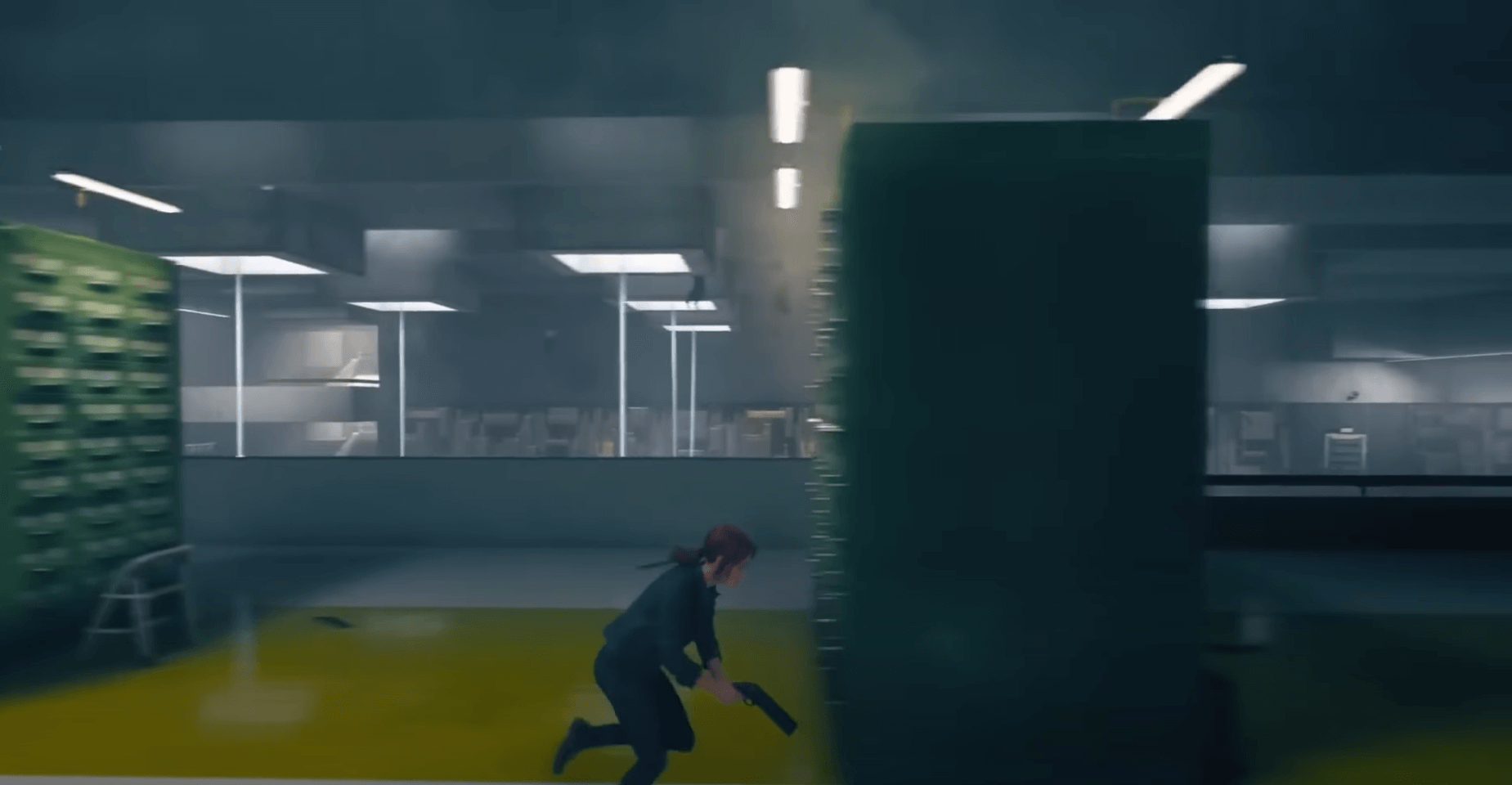
If you loved Hellblade: Senua’s Sacrifice, you'll likely find Control equally captivating due to its similar focus on psychological complexity and immersive storytelling. Both games tackle the theme of a protagonist grappling with a troubled mental state amidst bizarre and otherworldly environments. Just as Hellblade brilliantly delves into Senua’s inner turmoil and auditory hallucinations, Control dives into Jesse Faden’s mysterious journey through the ever-shifting corridors of the Federal Bureau of Control, a place filled with mind-bending phenomena. The narrative depth and the character’s introspective struggle create a gripping atmosphere that pulls you right into their world.
Another striking similarity is the atmospheric and visually mesmerizing world that both games present. Hellblade’s haunting landscapes and visceral visual style are echoed in Control’s surreal design and dynamic environments. The use of cutting-edge graphics to create unsettling yet beautiful sceneries enhances the overall experience, much like Hellblade did. Additionally, both games feature tight, third-person action gameplay with a focus on precise mechanics and abilities that grow with the protagonist’s journey. Whether you're wielding an ancient sword as Senua or manipulating telekinetic powers as Jesse, the sense of empowerment and progression is sure to keep you hooked.
Control is available on PlayStation 4, Xbox One, and Windows PC, typically priced around $29.99 USD.
14. Devil May Cry 5
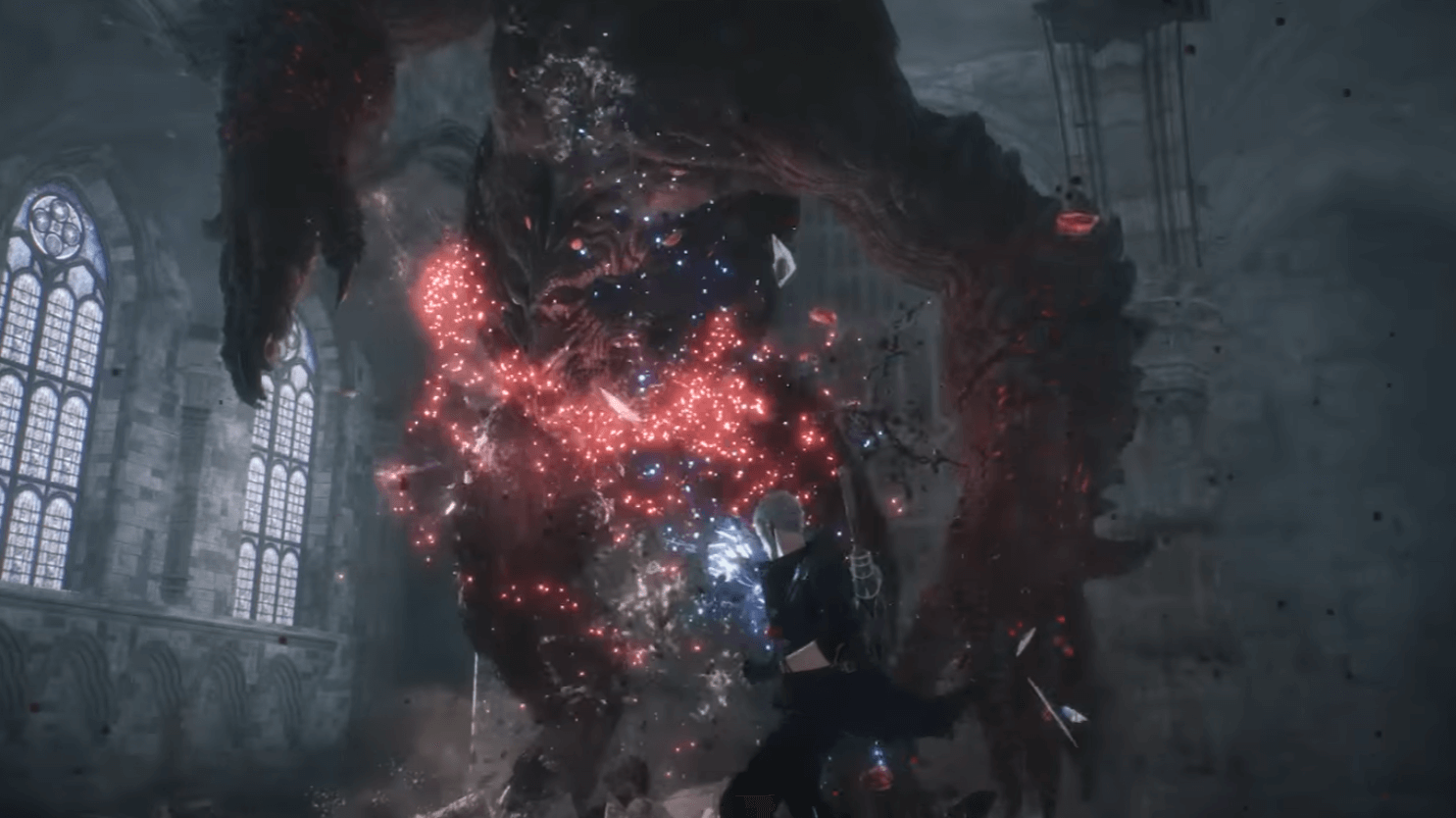
If you enjoyed the visually stunning and emotionally intense experience of Hellblade: Senua’s Sacrifice, you’ll find a lot to love in Devil May Cry 5. Both games offer an impressive level of detail in their graphics, immersing you in rich, atmospheric worlds. The narrative depth in Devil May Cry 5, while different in tone, delivers a compelling story with strong character arcs, much like the psychological journey of Senua. The game's focus on action-packed combat is balanced with storytelling elements that pull you into its fascinating lore.
Another aspect where Devil May Cry 5 shines is its intricate and satisfying combat mechanics, much like Hellblade: Senua’s Sacrifice. Both games make you feel the weight and impact of every move, whether you're executing combos as the stylish Dante and Nero or battling through Senua’s dark visions. Additionally, Devil May Cry 5's soundtrack and sound design are equally captivating, enhancing the overall experience and drawing you deeper into its demon-infested universe.
Devil May Cry 5 is available on PlayStation 4, PlayStation 5, Xbox One, Xbox Series X/S, and PC, typically priced around $29.99 USD.
13. Darksiders III
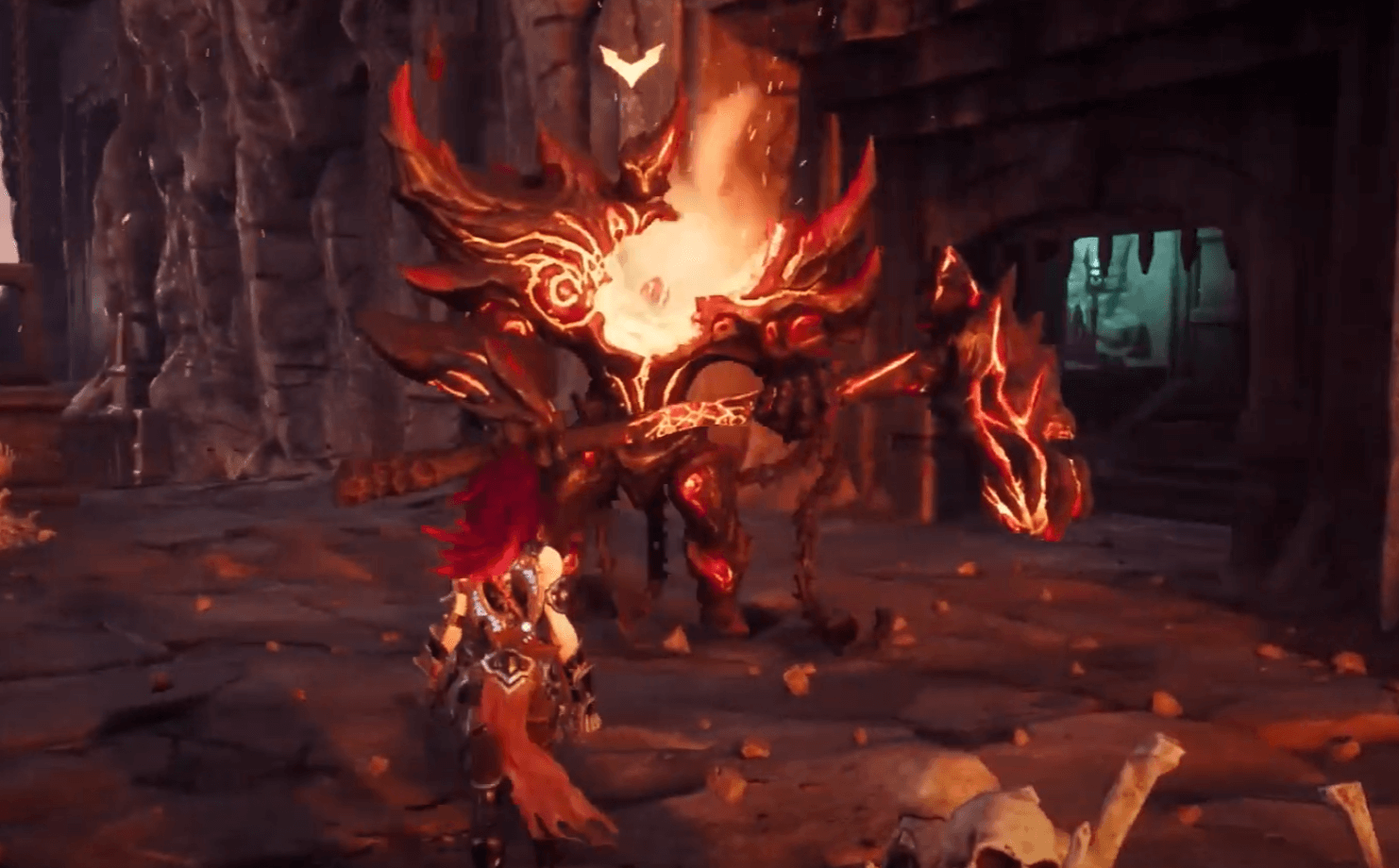
If you enjoyed the dark and atmospheric world of Hellblade: Senua’s Sacrifice, then Darksiders III will definitely catch your interest. Both games delve deep into their respective mythologies, with richly detailed environments that make you feel like you're stepping into another realm. While Hellblade delves into Norse mythology and explores mental health themes through its captivating narrative and intense atmosphere, Darksiders III immerses you in a post-apocalyptic world steeped in biblical lore, where you play as Fury, one of the Four Horsemen of the Apocalypse. The game offers an equally compelling story that will keep you hooked as you unravel the mysteries of this dark universe.
In terms of gameplay, both titles emphasize a close-quarter, melee-focused combat system that feels both fluid and weighty. Hellblade’s combat is methodical and precise, reflecting the strenuous journey of its protagonist, Senua. Similarly, Darksiders III features a combat system that prioritizes timing and strategy, with Fury wielding a versatile whip and a range of elemental abilities to take down foes. The intricate puzzle elements and the need for careful exploration present in Hellblade are also found in Darksiders III, ensuring that every moment offers a mix of combat, strategy, and thoughtful progression.
Darksiders III is available on PlayStation 4, Xbox One, and PC, typically priced around $19.99 USD.
12. Outlast

If you loved the intense psychological journey and eerie atmosphere of Hellblade: Senua’s Sacrifice, then Outlast could be the perfect next game for you. Both games place you in haunting environments packed with terrifying elements that challenge your mental fortitude. Outlast, like Hellblade, thrives on immersing you deeply in its unsettling world; you’ll find yourself navigating dark corridors, much like how you traversed the otherworldly landscapes in Senua's mind. The psychological horror elements are palpable, making you question what is real and what is not, intensifying the horror experience.
Additionally, both Outlast and Hellblade put a significant focus on the protagonist's psychological state. In Outlast, you play as an investigative journalist whose sanity is constantly threatened by the horrifying events unfolding around him, similar to Senua's struggle with her own inner demons. This shared emphasis on a deep, personal story adds layers to the gameplay, as you’re not just surviving, but also delving into the minds of these vulnerable characters. You’ll appreciate the detail and emotional intensity, making for a gripping narrative that pulls you in and doesn’t let go.
Outlast is available on PC, PlayStation 4, Xbox One, and the Nintendo Switch, typically priced around $19.99 USD.
11. Outlast II

If you enjoyed the atmospheric and psychological depth of Hellblade: Senua’s Sacrifice, you'll find a lot to appreciate in Outlast II. Both games masterfully plunge you into the dark recesses of the human psyche, blending horror with a compelling narrative. Outlast II unwraps its story through environmental storytelling and disturbing imagery, similar to Hellblade’s intricate portrayal of Senua’s struggles. The sound design in both games is phenomenal, intensifying the feeling of paranoia and dread, creating an immersive experience that will have you on the edge of your seat. Both titles also emphasize a strong emotional journey, leading you through eerie settings where danger lurks around every corner, and your senses are constantly heightened.
Additionally, the gameplay mechanics in Outlast II resonate with Hellblade's approach, emphasizing survival and exploration over combat. In Outlast II, you'll often find yourself hiding and running from threats rather than confronting them head-on, much like Senua's encounters where mental and emotional trials take precedence over physical combat. Both games employ minimal HUDs to keep you gripped in the experience, making every discovery and close encounter incredibly intense. With a harrowing atmosphere, captivating story, and edge-of-your-seat tension, Outlast II provides a haunting journey that echoes the chilling yet profound adventure found in Hellblade: Senua’s Sacrifice.
Outlast II is available on PlayStation 4, Xbox One, Nintendo Switch, and PC, typically priced around $29.99 USD.
10. A Plague Tale: Innocence

If you enjoyed Hellblade: Senua’s Sacrifice for its riveting narrative and hauntingly beautiful atmosphere, then A Plague Tale: Innocence is the perfect next game for you. Much like Hellblade, A Plague Tale: Innocence immerses you in a dark, medieval world filled with emotional depth and meticulous attention to detail. Both games focus on harrowing journeys of their respective protagonists—Senua grappling with her psychosis, and Amicia desperately trying to protect her younger brother Hugo from the ravages of the Black Plague and relentless Inquisition soldiers. The incredible narrative and rich environments in both games create an intense, immersive experience that resonates deeply with players.
Another area where A Plague Tale: Innocence shines, very much like Hellblade, is in its use of atmospheric sound and visual design to evoke powerful emotions. The intricate soundscapes in both games are designed to pull you into the protagonists' mental and emotional states, enhancing the storytelling element. Moreover, the puzzles and stealth mechanics in A Plague Tale bring a layer of engaging gameplay that complements its narrative focus, making it not just a journey to watch unfold, but one you actively participate in. If you loved navigating Senua through her psychological mazes and the tension of her battles, the challenges Amicia faces in A Plague Tale will keep you equally enthralled.
A Plague Tale: Innocence is available on PlayStation 4, Xbox One, and PC, typically priced around $39.99 USD.
9. Resident Evil 7: Biohazard

If you loved the atmospheric storytelling and deeply immersive experience of Hellblade: Senua’s Sacrifice, you're in for a treat with Resident Evil 7: Biohazard. Both games excel at creating intense, psychological horror experiences that keep you on the edge of your seat. Resident Evil 7 delivers a gripping first-person perspective that, much like Hellblade, pulls you into the protagonist’s world and makes you feel every terrifying moment up close. It brings together a narrative rich with dread and compelling characters, adding layers of depth to the survival horror genre.
Moreover, just like Hellblade uses binaural audio to plunge you into Senua's mind, Resident Evil 7 employs its own sound design masterfully to heighten the sense of impending doom and isolation as you navigate through the decrepit Baker family estate. The game balances puzzles, exploration, and combat while maintaining a narrative tension that echoes the emotional and psychological struggles found in Hellblade. Both games ensure that every creak of the floorboards and whisper in the dark feels significant, keeping you absorbed and entirely caught up in the experience.
Resident Evil 7: Biohazard is available on PlayStation 4, Xbox One, and PC, typically priced around $19.99 USD.
8. Resident Evil Village

If you enjoyed the atmospheric and deeply immersive experience of Hellblade: Senua’s Sacrifice, you’ll find a similar captivating ambiance in Resident Evil Village. Both games excel at creating a rich, detailed world that keeps you on edge and fully engrossed in the narrative. The haunting environments and masterful sound design of Resident Evil Village provide a chilling experience much like Senua's journey. You'll appreciate the psychological tension that permeates throughout the game, keeping you constantly engaged and invested in Ethan Winters' harrowing quest, just as you were with Senua's intense odyssey.
Resident Evil Village and Hellblade also share a focus on deep, personal stories that deal with trauma and resilience. While Hellblade dives into Senua’s struggle with mental illness and her fight against inner demons, Resident Evil Village tells a gripping tale of a father's unwavering determination to save his kidnapped daughter, bringing an emotional weight to the horror elements. Both games require you to navigate beautifully crafted yet ominous environments, solve intricate puzzles, and face formidable adversaries that will test your wits and courage.
Resident Evil Village is available on PlayStation, Xbox, and PC, typically priced around $59.99 USD.
7. Dead Space
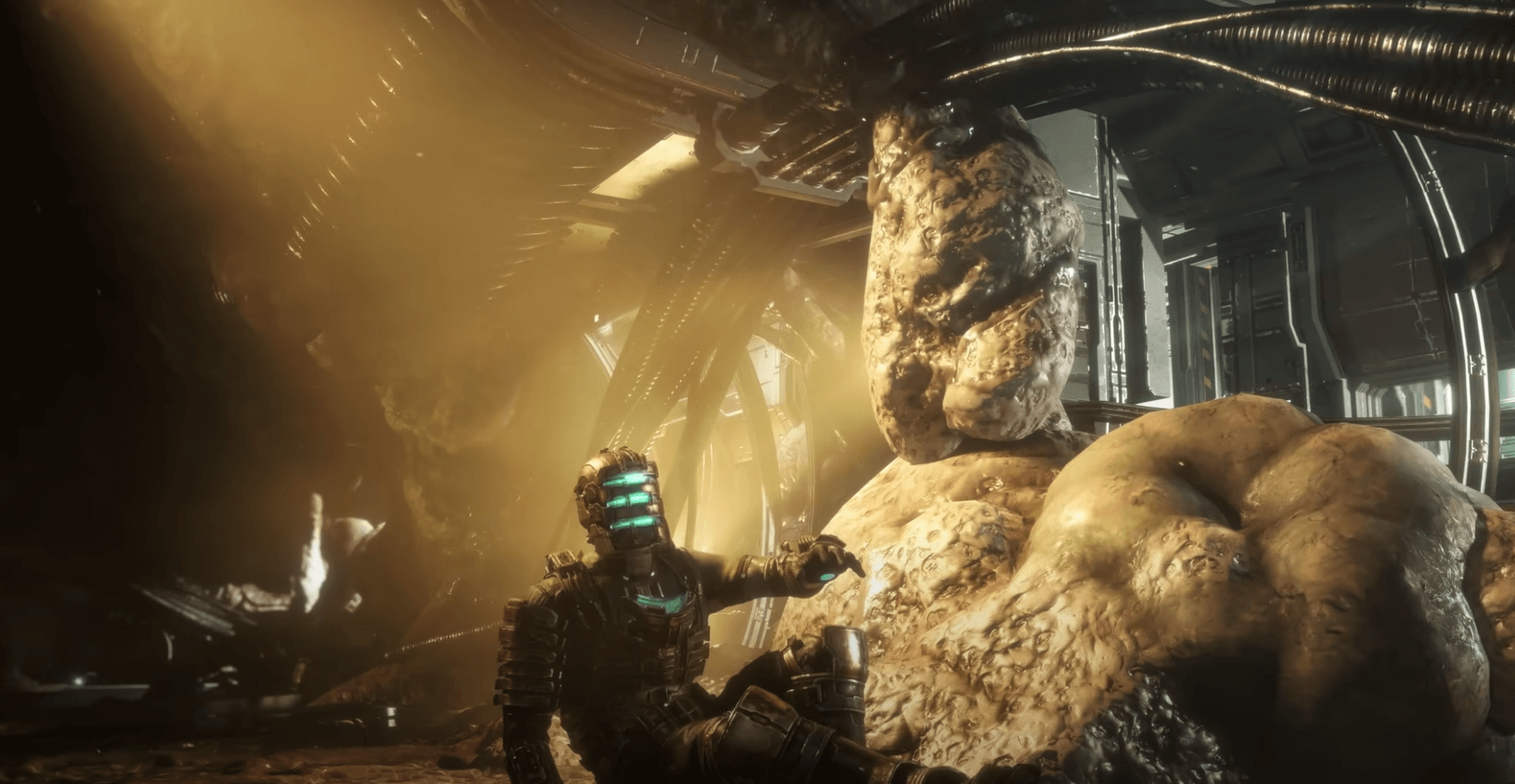
One of the reasons many players adored Hellblade: Senua’s Sacrifice was its incredible atmosphere and psychological depth. Dead Space similarly excels in creating an immersive and tense environment that pulls you into its world. Just like in Hellblade, where you experience Senua's journey through her struggles with mental health in a hauntingly beautiful Norse mythology setting, Dead Space plunges you into the desolate and claustrophobic corridors of the USG Ishimura. The game masterfully uses sound design and visual cues to evoke a sense of dread and urgency, making you feel as if you're constantly walking on a knife's edge. Both games excel in keeping you emotionally invested in the protagonist’s intense journey, making you feel every bit of their fear and determination.
Another element where Dead Space and Hellblade: Senua’s Sacrifice align is in their incredibly rich storytelling married with challenging gameplay. In Hellblade, you solve intricate puzzles and engage in visceral combat while uncovering Senua's emotional and psychological layers. Dead Space offers a similarly compelling narrative delivered through immersive environmental storytelling and audio logs. As Isaac Clarke, you not only battle relentless necromorphs but also unravel the chilling backstory of the Ishimura, making each victory feel hard-earned and impactful. Both games demand strategic thinking, whether through combat or exploration, and reward it by deepening your connection to their haunting worlds.
Dead Space is available on PlayStation, Xbox, and PC platforms, typically priced around $29.99 USD.
6. Silent Hill 2
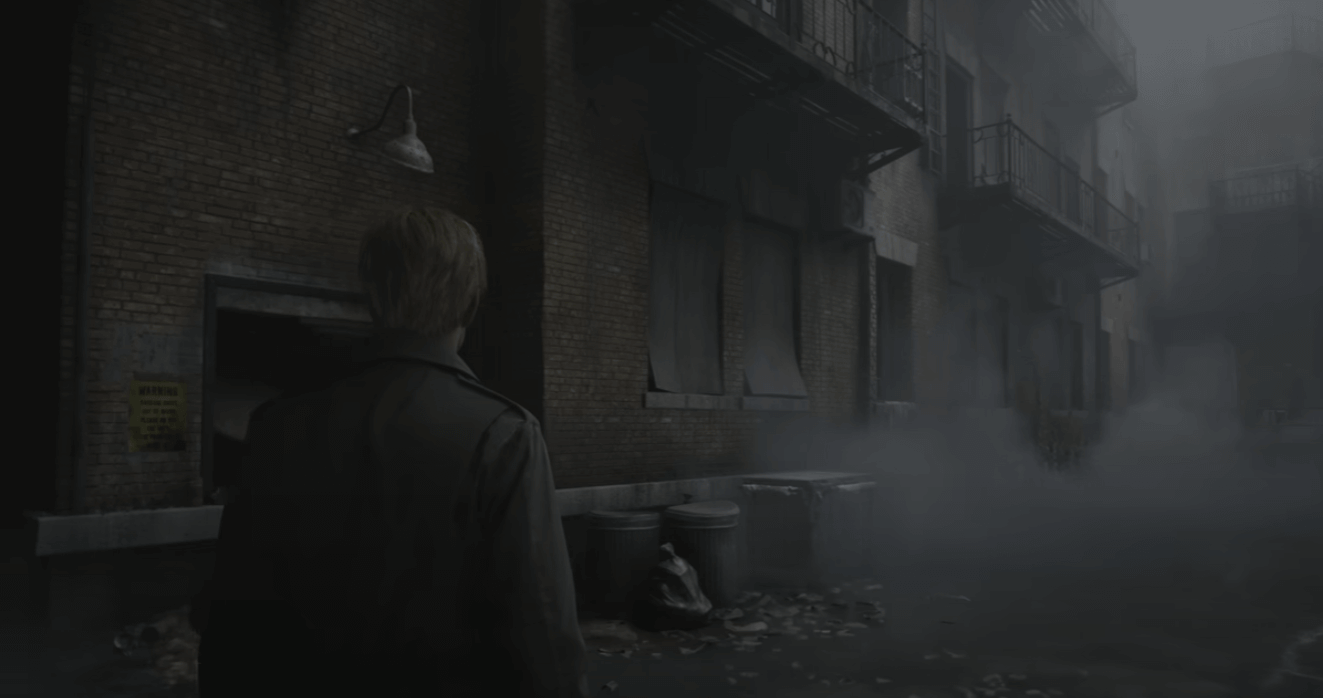
If you loved Hellblade: Senua’s Sacrifice for its psychological depth and atmospheric tension, then Silent Hill 2 is a must-play for you. Silent Hill 2 excels in its masterful use of psychological horror, diving deep into the human psyche much like Hellblade. Both games are lauded for their narrative strength, exploring themes of mental illness and personal trauma with great sensitivity and sophistication. The eerie, fog-laden town of Silent Hill evokes a similarly haunting and immersive setting as the harrowing journey through Senua's mind. Additionally, the sound design in Silent Hill 2 is equally exceptional, creating a sense of perpetual unease that will keep you on the edge of your seat.
Another major similarity lies in the emotionally charged storytelling. Both Silent Hill 2 and Hellblade: Senua’s Sacrifice focus heavily on the protagonist's internal struggles, making their journeys intensely personal and relatable. Silent Hill 2's protagonist, James Sunderland, grapples with guilt and grief, much like Senua's battle with psychosis. The games’ usage of visual and auditory hallucinations not only enhance the horror elements but also offer profound insights into the characters’ minds. This blending of psychological elements with horror-rich environments ensures that players are not just observers, but active participants in an emotional, mind-bending experience.
[Silent Hill 2] is available on [PlayStation 2, Xbox, and PC], typically priced around $[20] USD.
5. The Evil Within

If you loved the intense, atmospheric experience of Hellblade: Senua’s Sacrifice, then you’ll definitely want to check out The Evil Within. Both games masterfully blend psychological horror with deep storytelling, creating immersive experiences that keep you on the edge of your seat. In The Evil Within, you play as Detective Sebastian Castellanos, who must navigate a nightmarish world filled with grotesque creatures and mind-bending environments. Much like Senua’s journey into darkness, Sebastian’s adventure is haunted by personal demons and chilling revelations, making for an emotionally charged and spine-tingling experience.
Additionally, The Evil Within delivers a similarly rich audio-visual experience. The game’s haunting soundtrack and impeccable sound design amplify the fear factor, much like the whispers and chanting in Hellblade. The environments are meticulously crafted, filled with eerie details and a foreboding atmosphere that draws you in. Both games also have a strong emphasis on exploration and puzzle-solving, encouraging players to delve deeper into creepy locales and uncover the disturbing truths of the story. You'll find that The Evil Within offers a gripping, nerve-wracking experience akin to the one you enjoyed in Hellblade.
The Evil Within is available on PlayStation 4, Xbox One, and PC, typically priced around $20 USD.
4. The Evil Within 2
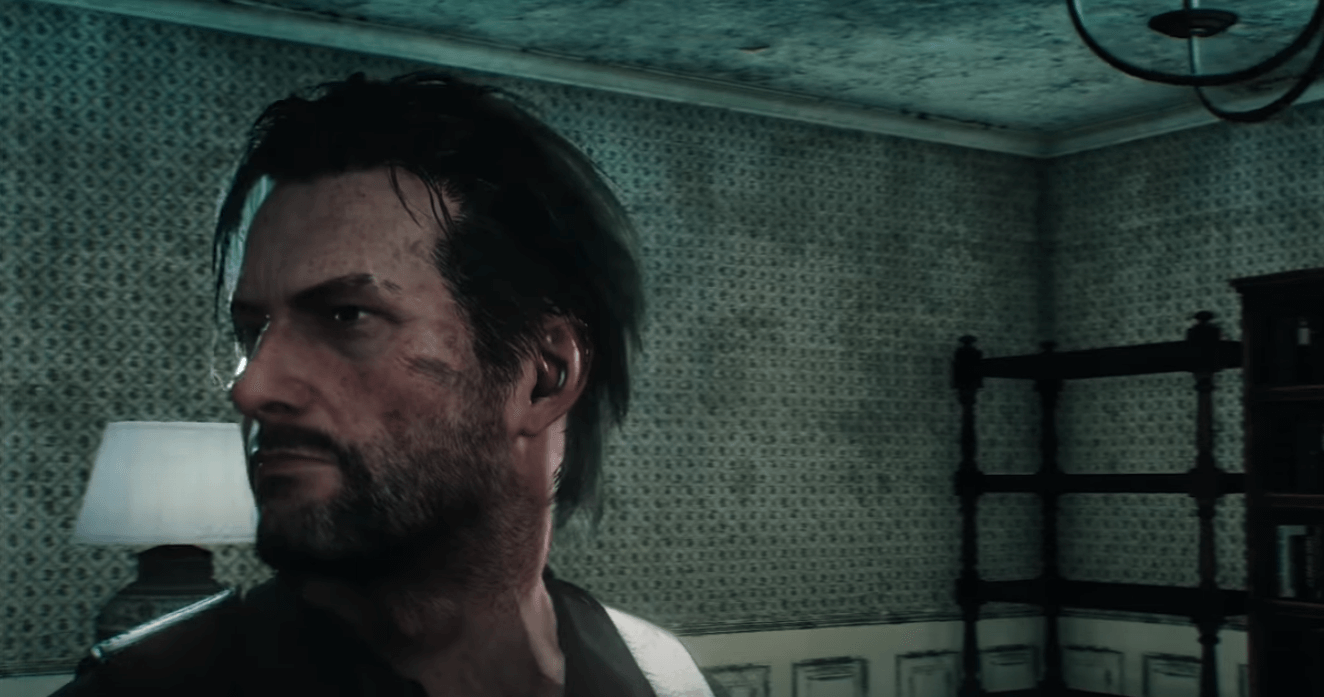
If you enjoyed the intense psychological journey of Hellblade: Senua’s Sacrifice, you’re likely to find a lot to appreciate in The Evil Within 2. Both games delve deeply into the human psyche, presenting a compelling mix of psychological horror and gripping storytelling. The Evil Within 2 stands out for its use of a semi-open world that allows players to explore haunting, surreal environments, enhancing the sense of immersion similar to Senua's treacherous journey through myth and mental struggle. The depth of the protagonist Sebastian’s personal story, filled with loss and determination, mirrors the emotional and psychological hurdles that made Senua’s quest so captivating.
Another aspect that aligns the two games is their meticulous attention to atmosphere and visual design. The eerie, mind-bending visuals in The Evil Within 2 create a nightmare-fueled landscape that will remind you of Hellblade’s dark and foreboding world. Not only does the game provide heart-pounding moments of survival horror, but it also features intense, emotional narrative beats that invoke a similar depth of character connection you experienced with Senua. Additionally, the combat mechanics and puzzles are thoughtfully designed, ensuring that each encounter and challenge feels meaningful and enhances the overall narrative experience, just like in Hellblade.
The Evil Within 2 is available on PlayStation 4, Xbox One, and PC, typically priced around $19.99 USD.
3. The Medium

If you loved the psychological depth and immersive storytelling of Hellblade: Senua’s Sacrifice, then The Medium is a must-play for you. Both games delve deeply into the human psyche, blending reality with the surreal in a way that keeps you questioning what’s real and what’s imagined. The Medium takes this concept to the next level by introducing a dual-reality gameplay mechanic, where you navigate both the real world and the spirit world simultaneously. This unique feature adds a new layer of depth to the narrative and puzzles, making it a truly captivating experience.
Additionally, just like Hellblade: Senua’s Sacrifice, The Medium excels in its atmospheric presentation and sound design. The chilling soundtracks and environmental audio cues are designed to keep you on edge, creating an immersive experience that pulls you into its eerie, unsettling world. Both games also feature strong, well-developed characters and rich, emotionally-driven plots that tackle heavy themes such as trauma and mental health. The narrative-driven gameplay combined with the brilliant atmospheric elements make The Medium an ideal follow-up if you’re craving another intense, story-rich experience.
The Medium is available on PlayStation 5, Xbox Series X/S, and PC, typically priced around $49.99 USD.
2. Alien: Isolation
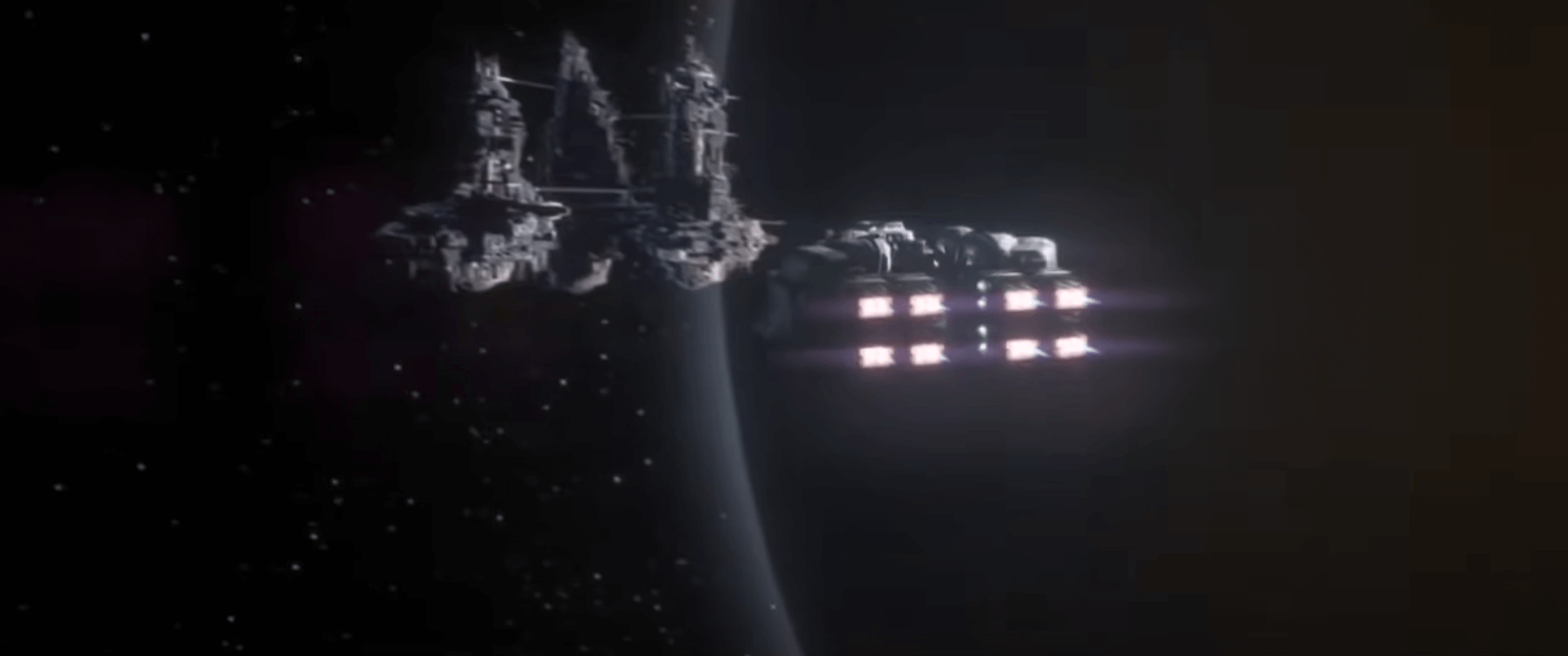
If you enjoyed Hellblade: Senua’s Sacrifice for its intense atmosphere and psychological depth, you’ll likely appreciate Alien: Isolation for similar reasons. Both games masterfully create a sense of immersion and tension, drawing you into their meticulously crafted worlds. Just like Senua's harrowing journey through her own mind and mythic landscapes, Alien: Isolation places you in a high-stakes, atmospheric environment where every moment matters. The game uses its setting aboard a derelict space station as effectively as Hellblade's Norse-inspired environments, enveloping you in a haunting yet captivating atmosphere that keeps you on edge.
Another key similarity lies in the way both games utilize audio and visual design to enhance the narrative and emotional experience. Alien: Isolation employs ambient sounds, eerie silence, and unexpected noises to keep you constantly alert, much like how Hellblade uses binaural audio to convey Senua's psychosis and inner turmoil. This audio-visual storytelling intensifies the immersive experience, pulling you deeper into the story. Both games also feature strong, isolated protagonists who must confront their fears head-on, making for a deeply personal and engaging journey.
Alien: Isolation is available on PlayStation 4, Xbox One, Nintendo Switch, and PC, typically priced around $30 USD.
1. Layers of Fear

If you enjoyed Hellblade: Senua’s Sacrifice, you’ll find Layers of Fear captivating due to its psychological depth and atmospheric storytelling. Much like Hellblade, Layers of Fear immerses you in a world where the protagonist's mental state is crucial to the narrative. You play as a tormented painter working to complete his masterpiece while grappling with his deteriorating sanity. The game employs a first-person perspective, along with surreal and shifting environments, to pull you into a nightmarish experience that is both haunting and beautiful. The rich, layered storytelling and intense focus on psychological horror keep you deeply engaged, much like the intimately personal journey of Senua.
Another compelling similarity lies in the game’s audio and visual design, both integral to enhancing the immersive horror experience. Layers of Fear, akin to Hellblade, uses a dynamic, unsettling score and an array of sound effects that morph with the protagonist’s emotional and mental state, creating an ever-present sense of dread. The visuals are equally striking, with each room in the painter's mansion warped by his psyche, much as Hellblade's environments were influenced by Senua's struggles. The masterful use of these elements ensures that each moment is unpredictable and continuously engaging, providing a deeply atmospheric and psychological experience.
Layers of Fear is available on PlayStation, Xbox, and PC, typically priced around $19.99 USD.
You've reached the end! Check out the home page for more informative articles on your favorite games.